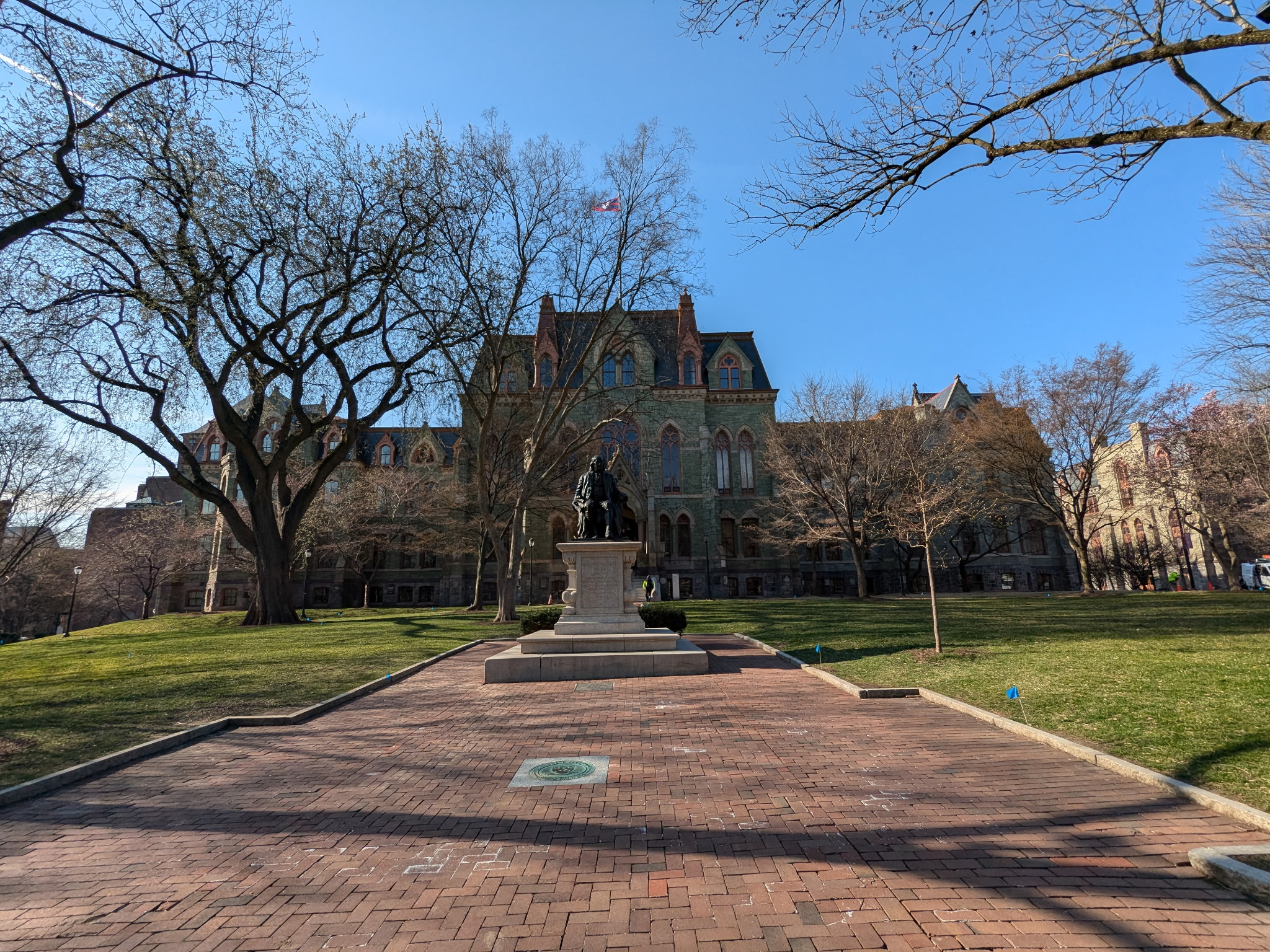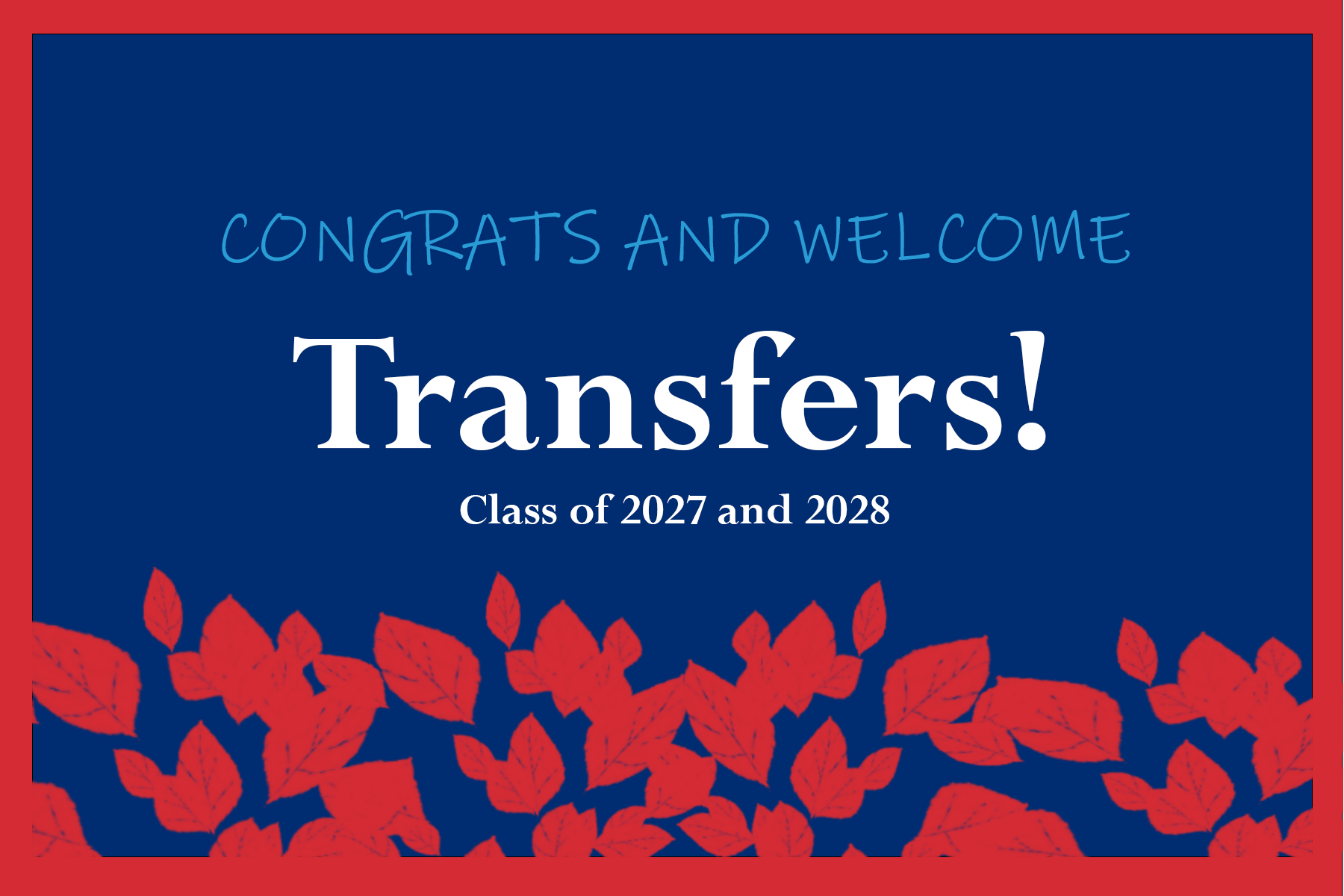A Mexican-American’s exploration of the American Dream and Promise at Penn.
Photo credit: Joanna Luna
By Joanna Luna
As a Mexican-American from the borderlands, my diet consisted of homemade meals where every bite was savory, and more often than not, spicy. However, there was one more thing I consumed, at times by force, that affected my life’s course. This popular dish is known around the world as The American Dream. At my house, this dish was cooked with a healthy and sturdy dose of hard work, dedication, and sacrifice. Like Popeye ate the spinach to gain intense strength, I indulged in the American Dream, believing that if I worked hard enough, dedicated myself for long enough, and sacrificed just enough I would climb the ladder too. I have seen too much to continue believing this without reservation. However, the more Latine people I encounter, the more I learn that our conceptions of the American Dream are dishes with just as much variety as our recipes for rice and beans.
I decided to posit the recipe’s variability at La Casa Latina, the cultural hub for many Latine students on campus, to explore the American Dream beyond the confines of my consciousness. Talking to students from many different backgrounds, I have concluded that there are three main ways to see the American dream, as economic, ideological or some combination of both.
Immigrants and their children who believe their exodus to the United States was pushed by economic factors and socioeconomic mobility are motivated by the economic American Dream. I am part of this group.
Those who see their migration as political or brought on by the ideological destruction of their home country, see the American Dream as ideological. These are the people who sought out a life in the United States formulated by and alluded to in the country’s founding documents.
After conducting several interviews, it became clear that the American Dream is anything but one-dimensional as these two forms of conceptualizing the American Dream converged and often competed.
Each individual’s version of the American Dream depends on the reason their family made the journey to the United States. I interviewed people from Mexican, Ecuadorian, Dominican, Cuban, and Columbian backgrounds whose generational recency and immigration stories differ. While their stories can in no way be representative of all Hispanic Immigrants to the United States, they are still part of a broader narrative that ought to be heard in the search for such an elusive dream.
One Latina student on campus, of a Mexican American background, expressed her American Dream as a combination of ideological and economic.
“The American Dream, for my family, was about providing their children with a backyard to play with and opportunities they did not have back home,” the student who was quoted anonymously said. “Unfortunately, not all of this has happened, just the backyard part. But, I’m here now. That was part of the dream, but at what cost?”
While students acknowledged that they are fulfilling some parts of their family’s recipe for the American Dream, many also expressed feelings of disappointment as barriers to their goals became increasingly apparent.
Santiago Moposita (W’ 25), an Ecuadorian-American student, was the first natural-born U.S. citizen in his family. He shared his experience with the American Dream.
“I think I stopped believing in the American Dream a long time ago when I realized that it is not really sustainable,” he said. “I’ve seen how hard my parents have worked. In our minds, the harder you work, that’s when you see success. I realized that is what the American Dream is oriented to.”
He explains that achieving this American Dream hinges on financial literacy which many people do not have. He hopes to increase this literacy in his community to help people achieve their American Dream.
Sheila Pimentel (W’24), a Puerto Rican-Dominican student, shared her story as a first-generation American.
“You need to be financially free to have this ideological dream come to fruition. They go hand in hand,” she explained. “The American Dream engraved in my head was about going to college, getting a degree, a well-paid job, having children, and climbing the socioeconomic ladder.”
She went on to explain that the fulfillment of an all-encompassing American Dream relies on stability.
“The American Dream, as a born American citizen, is fake coming from an immigrant family,” She said, “It’s not real because the idea of having a home, and a white-picket fence, and affording these luxury goods doesn’t really seem feasible for an immigrant American family.”
Another individual with a Puerto Rican-Dominican background shared her perspective on the American Dream.
“The American Dream means, to me, opportunity. I am in a better place than I was in the past, but that came with a lot of hard work, dedication, and lots and lots of sacrifice,” she said. “That’s something that isn’t really publicized when you talk about the American Dream. It’s shown as this shiny ‘You can do anything. You can achieve anything.’ On the surface, that is kinda true, but not everyone has the same opportunities to bring them to the place where they want to be.”
A Columbian-American student in the College of Arts & Sciences also shared his story. He placed an emphasis on the importance of differentiating between an immigrant’s American Dream and that of their children.
“For many people, the American Dream is about an abundance of resources, and that there is an ability here, more so than in other places, to rise up and have more financial stability. That is in terms of perception… Whether or not the dream is true is very much debated.”
Many Latine students on campus expressed their American Dream in terms of socioeconomic mobility; however, others had differing opinions.
Anthony Montes de Oca (C ’25) is a Cuban-American, First Generation Low Income (FGLI) student and the current president of the Cuban American Undergraduate Student Association (CAUSA). Montes de Oca explained the additional importance of ideological and political factors in the formation of his family’s American Dream. While earlier interviews reflected a focus on the economic factors of the American Dream, Montes de Oca explained that his parents sought economic and social freedom. Like other children of immigrants, Montes de Oca’s perception of the American Dream is influenced by his parents and, in this case, their search of social freedom as a driving force.
“My mom is very proud of her roots, but she is also very grateful to be here and have the ability to give us the opportunities we have because she knew that would not be the case back in Cuba,” Montes de Oca said. “My mom is probably one of the most patriotic people I have met. She is very emotional. At a baseball game, if they play ‘God Bless America’ she will cry.”
While Montes de Oca expresses gratitude for the opportunities he has received, he also recognizes the inherent hurdles to reaching those opportunities.
“I feel the American Dream has been full of barriers,” Montes de Oca said. “In the end, there is a large amount of money and sacrifice that you have to dedicate to be able to access certain opportunities. I have to push myself forward to make sure I stay on the right track.”
However, Montes de Oca explained that a distinctive mark of the American Dream is the access to expression and ability to combat social issues without fear of retribution.
“We are the best, or one of the best countries in the world, because we have the ability to combat social issues, and we have the platform to change it,” Montes de Oca said. “That is not the case in many other countries. Having the power to express yourself is an important factor in this country.”
Jennifer Mesa (C ’26) is a Cuban-American, FGLI student whose American Dream was influenced by her family’s dreams as well as her own. Mesa places importance on the political rights enumerated in the U.S. legal framework as well as the feeling that comes with being an American. Mesa also marks a distinction between the dream itself and the ability to physically achieve it.
“The American Dream means being able to go to a place that relieves you of the oppression that you were facing before, whatever that may be, whether it is persecution, oppressive governments, lack of economic mobility,” Mesa said. “It’s the ability to climb higher, dream bigger, and to have the freedom to do it. It doesn’t mean you’ll have a guaranteed outcome. It means that you can.”
Mesa explains her concept of the American Dream in respect to her family’s journey to the United States in search of an entirely different social and political atmosphere.
“Most importantly for me, the American Dream means that you can be protected by a government that you choose rather than a victim of a government you are subjected to,” Mesa said. “For many people that’s what coming to America means. That is certainly what it meant for my family.”
The American Dream is complex.
For my parents, it meant coming to a country where economic mobility was an implicit promise they could strive for, only to become disillusioned by the inherent systematic barriers every time they attempted to move up. However, upon exploring beyond my personal perspective, I found that it can mean much more than climbing metaphorical ladders.
The American Dream is but a recipe with a wide range of ingredients mixing and matching. My recipe has been hard work, dedication, and extreme sacrifice. The taste this dish leaves in my mouth differs from time to time. The times my family has faced harsh financial uncertainty, my mouth has puckered with the rotten and acidic taste of this dream. The time I walked the graduation stage as a high school senior, my mouth indulged in the sweet and soothing honey my parents cultivated with love and sacrifice. The day I graduate from Penn, I know the American Dream will taste of victory tres leches.
For now, I will continue to cook and taste hoping, maybe in vain, that one day this dream will taste mostly of victory. Only for the time being, I will settle for the fluctuating flavors of this dream knowing that it is everything but one-dimensional as I continue to read through people’s different variations of the recipe in hopes of finding the elusive thread between bitter and sweet.
Joanna Luna is a junior in the College studying English Literature and Legal Studies & History from Laredo, TX. Joanna is also an Arts & Culture Editor for The Pennsylvania Post. Her email is lunajoan@sas.upenn.edu.




